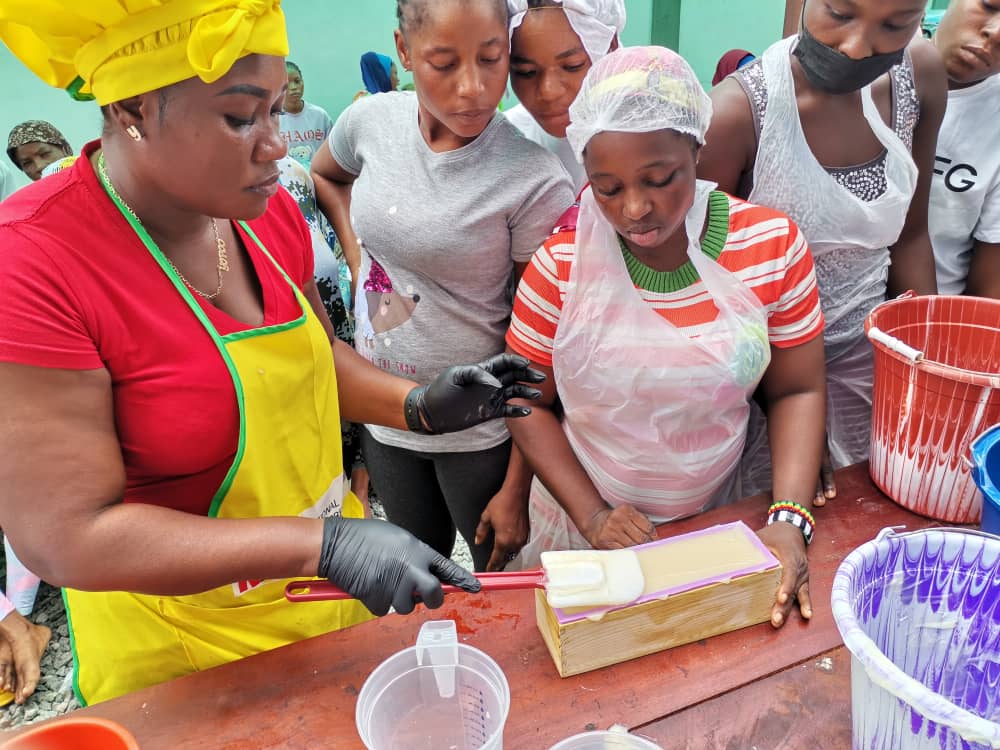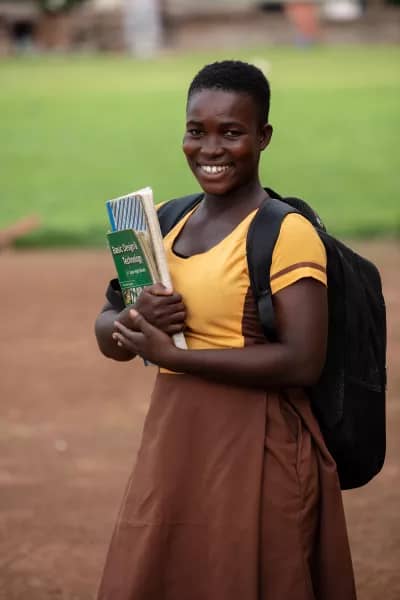A GNA Feature by Muniratu Akweley Issah
Accra, Sept. 24, GNA – Maame Afua Mensah, an 18-year-old adolescent, is finally back to school after dropping out for three years, as she was unable to bear the shame of being pregnant during her preparation for her Basic Education Certificate Examination (BECE).
Just when she thought her dream was shattered, Maame Afua’s Headmistress educated and convinced her and her mother, Grace Asare, on the opportunities available to her if she goes back to school, that is another window opportunity to pursue her dream.
Though Auntie Grace was disappointed that her only daughter had gotten pregnant at a young age, she agreed to take care of the baby while Maame Afua went back to school to further her education and pursue her dreams of becoming an entrepreneur.
Education
Education is a vital aspect of human life, particularly, the girl child and involves the acquisition of knowledge, reasoning and preparing intellectually and adequately for future responsibilities.
It also affords one the opportunity, taking into consideration critical and analytical skills, decision-making, problem solving and logical thinking.
Having general academic, professional, vocational, and technical education, among others, has led to the realisation of dreams for many individuals who have become better off in society.
Attaining higher heights through education or learning a vocation or trade makes the girl child an independent person and prevents them from falling prey to social vices and exploitation.
Social / Educational Interventions
The Sustainable Development Goals (SDGs) four seeks to ensure inclusive and equitable quality education and promote lifelong learning opportunities for all.
Over the years, the government and development partners have made frantic efforts to promote quality and inclusive education for Ghanaians and encourage more girls to access education.
The Ghana School Feeding Programme is one of the many social interventions instituted by the government in 2005 to promote access to education, enhance food security, and improve the nutritional status of children, as well as reduce hunger and poverty.
It is also aimed at increasing enrolment of children and retaining them at school, empowering them economically, having a livelihood, and becoming responsible citizens in society.
Many schoolchildren are encouraged to be in school due to their access to one hot meal a day, which sustains them and their brains while in school.
FCUBE system
In 1996, the Government of Ghana launched the Free Compulsory Basic Education (FCUBE) programme for every school going-age to enjoy free basic education without payment of school fees.
Additionally, in 2017, Free Senior High School (Free SHS) was introduced by the government as an institutional basic right that provides equal and free education opportunities for all Ghanaian students in public second cycle institutions, including agricultural, vocational, and technical schools.
Free SHS covers all approved fees, boarding, admission, library, science centre, computer laboratory, examination, utility, textbooks, and a meal for day students, bringing relief to many parents as some of their financial burden had been lifted off their shoulders through free education.
The policy and skills training serve as sources of empowerment opportunities for the youth aimed at driving Ghana’s development and creating jobs.
Girls are encouraged by the government through its Science, Technology, Engineering, and Mathematics (STEM) initiatives to venture into science-related courses, mostly dominated by men.
Government initiative
As part of policies to get school dropouts to continue their education and become better persons in the future, the government recently initiated a youth entrepreneurial skills training for female head porters (Kayayei) to have businesses and become financially independent.

Development partner organisations, including the Human Rights Advocacy Centre (HRAC), augmenting and supporting the government’s efforts and projects, have provided entrepreneurial skills, painting, and Information Communication Technology (ICT) skills for young persons, particularly girls.
This according to the HRAC would give them the right to employment, right to life and basic amenities so that young girls and prevent them from getting into social vices
Re-entry Policy
Ms Barbara Asare, Campaigns Coordinator, World Vision Ghana, underscored the need for more female role models to empower girls in attaining higher heights, saying that they would be encouraged to strive for excellence when they see other females excelling and making progress in their respective fields, despite existing inequalities in society.

The Campaigns Coordinator acknowledged that in the last few years, there had been increased attention on issues that matter to girls among government, policymakers and the public, and more opportunities for girls to have their voices heard on the global stage, however investment in girls remained limited as girls continued to confront a myriad of challenges.
‘‘It is difficult for them to leave their babies behind; there is nobody to take care of them, and the stigma coupled with the refusal of some heads to accept them back prevents most of them from going back to school. We have had successful stories where girls have gone back to school after delivery; some have also been enrolled in vocational skills training.’’ The Campaigns Coordinator said.
UNICEF Ghana, working with partners to address barriers and pave the way for girls in Ghana to make progress in basic education, has been providing gender training for professionals and actively working on reforming Ghana’s school curriculum to adequately tackle issues of equity, gender, and inclusion.
It is supporting the Re-Entry policy by encouraging teenage mothers to return to school and also providing vocational and technical skills training for them to gain independent livelihoods.
In 2023, UNICEF collaborated with non-governmental organisations (NGOs), including the Emeka Foundation, to provide skills training and income generating activities for about 100 adolescent school dropouts and teenage mothers at Afadjato in the Volta region.
Ms Charity Neequaye, Social Behaviour Change (SBC) Specialist, UNICEF Ghana, said feedback had been positive as beneficiaries are now independent and generating a livelihood for themselves, adding that it was necessary to create an enabling environment for girls to be empowered and be given the needed information at every stage in life.
“When the environment is hostile, they would not be able to express themselves; hence, a collective effort of parents and gatekeepers would help to educate adolescent girls and give them all the information needed at their stages,” she stated.
In the Upper East, UNICEF Ghana worked with the Rural Initiative for Sustainable Empowerment (RISE) Ghana to engage community leaders and stakeholders on creating an enabling environment for adolescents to grow and transition smoothly into adulthood as well as tackling their mental health.
He called on parents and gatekeepers to be patient with adolescents and provide them with the necessary information ahead of reaching the stage, which starts about 10 years, noting that adolescence was a confusing phase that needed guidance.
Adolescent Girls Health
Dr Elizabeth Bankah, Family Physician, Greater Accra Regional Hospital, Ridge, said ensuring the health of adolescent girls was important and must be done alongside promoting their education, indicating that healthy girls would perform well in school.
She said to ensure this, Adolescent Clinic has been set up at the hospital to give girls the necessary health attention, stressing that having low haemoglobin affects one’s concentration and productivity at school.
“We know that a lot of girls are anaemic, and as such, concentration becomes difficult at school and affects their intelligence. We also have young ladies who do not have good nutrition, either not getting enough food to eat or they had been menstruating a lot in addition to malaria, affecting their haemoglobin level,” she stated.
She lamented that girls were missing school because of painful menstruation, noting that such a normal physiological thing should not affect their education.
Conclusion
All these interventions are existent to support the girl child in attaining her dream of becoming responsible adults and contribute to the development of the country.
Maame Afua Mensah like many other girls has gotten the opportunity to pursue their dreams with support from government, partners, parents and caregivers and will be able to take care of herself and family with the attainment of her financial freedom.
Many dreams have become a reality, having their own source of livelihood and financially independent without a burden to family and society.
GNA